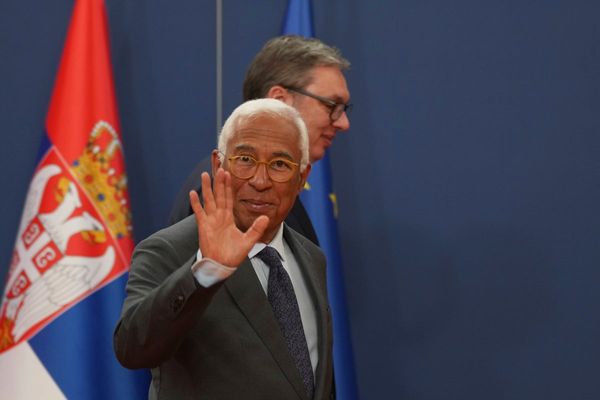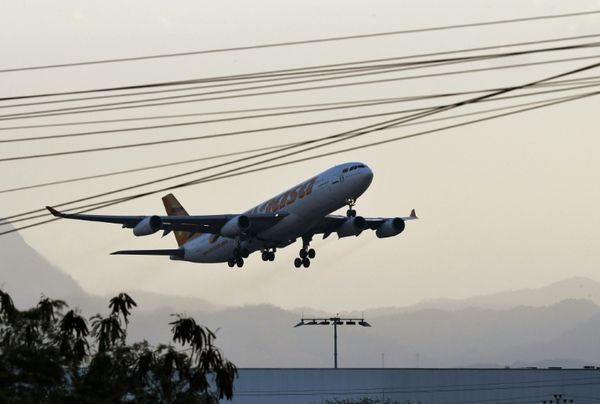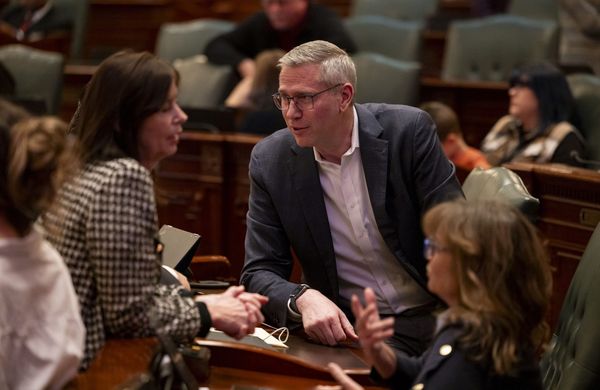
The high cost of global travel right now is fueling Australia’s worker shortage, the country’s trade minister said, with the jobs market the tightest it’s been in almost 50 years as the Covid crisis eases.
Pre-pandemic, foreign students and young travelers filled a key role in the Australian labor force, working in restaurants and other service-sector jobs, Trade and Tourism Minister Don Farrell said in an interview with Bloomberg News in Los Angeles, on the sidelines of a meeting of Indo-Pacific trade ministers on Friday.
Since the country dismantled its strict pandemic border regime earlier this year, demand for these sorts of visas has been high, but would-be workers are being deterred by “capacity and cost,” he said.
Expensive airfares are “an impediment to getting things back to normal in terms of staffing,” said Farrell. A lack of flights, with airline capacity not yet back to pre-pandemic levels, is also deterring workers, he said. “We’ve got to somehow address that.”
The minister ruled out the government subsidizing workers’ airfares, saying companies that relied on these sorts of employees had received financial support during the pandemic to stay in business and retain staff. Many of the working travelers -- known as “backpackers” -- who filled labor gaps before Covid came from the US and Europe, Farrell said, adding that the cost of airfare from the US to Australia had roughly tripled from pre-pandemic times.
Travel demand has skyrocketed as countries scrapped border restrictions, taking many airlines by surprise.
Tickets out of the UK over the northern hemisphere summer were up by almost a third, according to online travel agency Kayak, while flights from Australia were roughly 20% more in April than they were in 2019, a Mastercard Economics Institute study found. At the same time, carriers have been reluctant to return their full fleets to service in case the surge in demand is temporary. Rising fuel prices and inflation have also played a role.
Restaurants Can’t Open
After closing its borders during the pandemic, Australia is now targeting migrants, raising its permanent immigration ceiling this month to allow as many as 35,000 more workers into the country every year, up from 16,000 previously. The jobless rate currently sits 3.4%, the lowest in almost five decades, and is expected to fall further even as the central bank keeps raising interest rates to cool demand and slow inflation.

“There are labor shortages in just about every part of the economy,” Farrell said on Friday. “We can’t actually get enough people to open, for instance, restaurants.”
Before the border shutdown in 2020, almost 400,000 international students and 250,000 working vacationers were employed each year in Australia, many in hotels and restaurants.
Farrell said he expects the airfare squeeze to improve as airlines put on more planes, but that it will take time. Qantas Airways Ltd. is looking to re-mobilize a number of planes, he said, with many jets owned by the national carrier and other airlines parked in Australia’s desert center as global travel collapsed during the pandemic. The dry climate was ideal for storage and maintenance.
No Chinese Tourists
Australia’s tourism industry is also yet to bounce back, he said, with the lack of flight capacity just one of the issues. China used to be the biggest source of tourists, but its Covid Zero approach means borders remain effectively shut and Chinese aren’t traveling internationally.
Farrell said this is also impacting Australia’s education sector, which relied heavily on students from China, particularly colleges.
“I don’t believe that we’re going to see a return to top Chinese tourism or education anytime soon,” he said. “We just have to accept the proposition that we’re not going to see a return to what occurred pre-pandemic. What that means is we’ve got to ramp up travel from other parts of the world.”
Farrell was in the US for a meeting with his counterparts from 13 other countries to launch negotiations for the Indo-Pacific Economic Framework. The initiative, from which India opted out, is an effort by President Joe Biden’s administration to deepen ties with Asian nations through a range of issues including trade, climate change, supply chains and taxation. It’s also among US levers to counter China’s rising influence, although US officials have stressed that they aren’t asking partners to choose between Washington and Beijing.
©2022 Bloomberg L.P.







